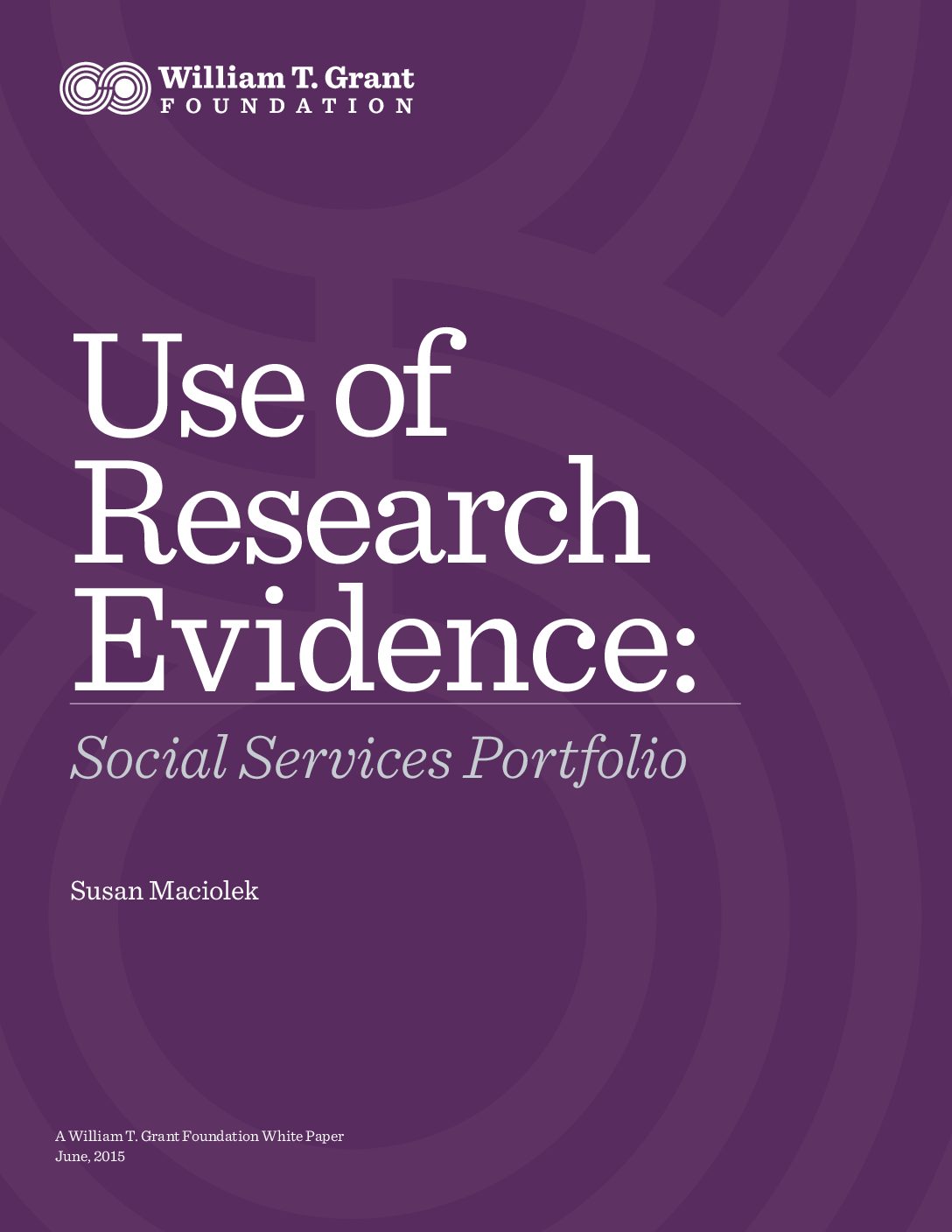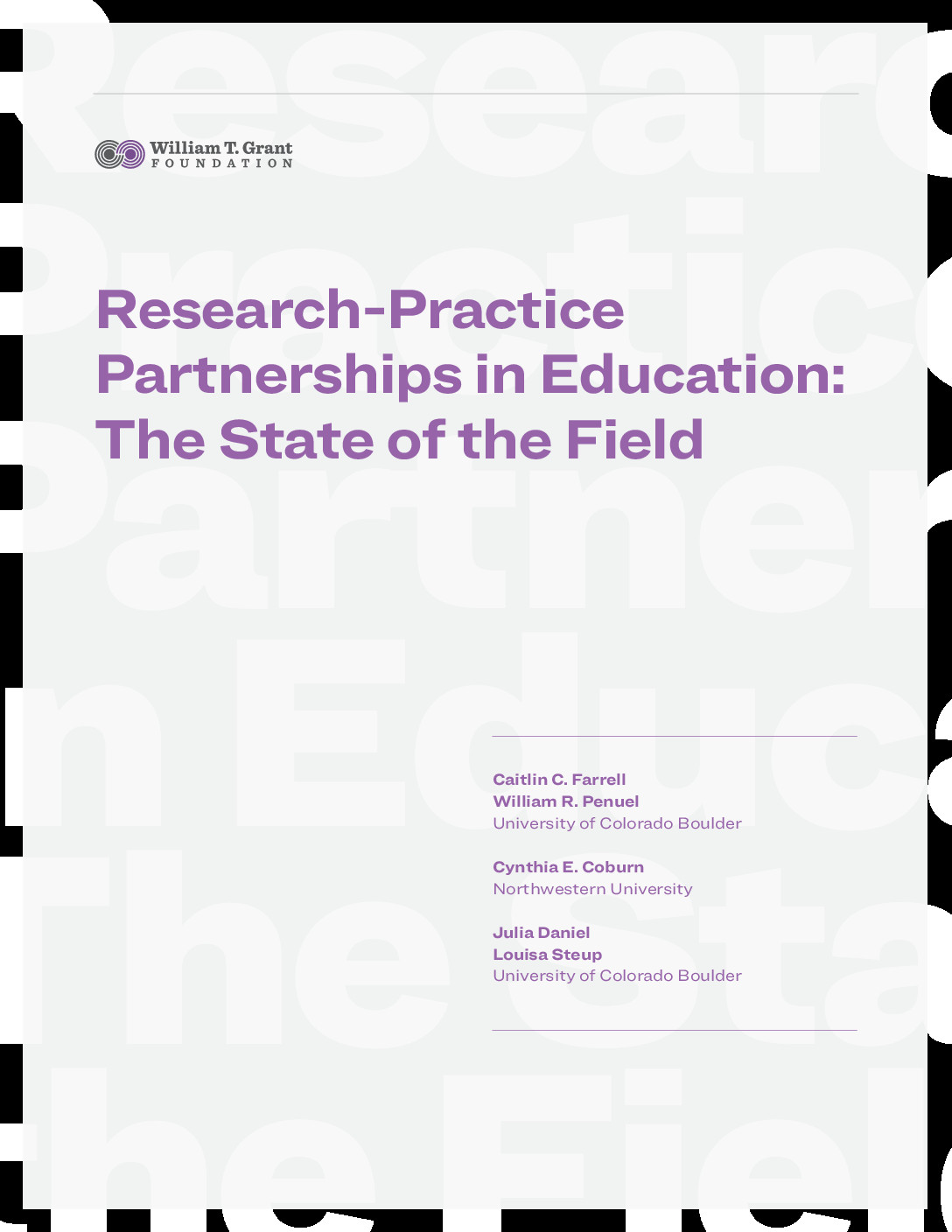These resources offer recommendations for applicants seeking to apply for a research or Scholars grant aligned with the Foundation’s focus area on studying ways to improve the use of research evidence to improve the lives of young people.

Research Grants on Improving the Use of Research Evidence
Applicant Resources
Applicant Guidance
Annotated Proposals
Recommended Reading
Applicant Resources
Applicant Guidance
Annotated Proposals for Research
Grants on Improving the Use of Research Evidence
- Fostering Research Use in School Districts Through External Partnerships: The Role of District Capacity
Cynthia Coburn and James Spillane, School of Education and Social Policy, Northwestern University; Anna-Ruth Allen, School of Education, University of Colorado at Boulder; Megan Hopkins, College of Education, Pennsylvania State University
July 2015–December 2017, $543,284 - Impact and Optimization of The Research-To-Policy Model: Testing an Approach to Improve the Use of Evidence
Daniel Crowley and Taylor Scott, Human Development and Family Studies, Pennsylvania State University; Kathryn Oliver, Dept. of Evidence-Based Social Intervention and Policy Evaluation, University of Oxford; Lauren Supplee, Early Childhood Development Research, Child Trends
March 2018–February 2020, $553,028
Recommended Reading
The following resources address three important considerations in successful proposals for research on improving the use of research evidence: 1) rich conceptualizations of the use of research evidence, 2) theorizing about how to improve, and not simply understand, the use of research evidence, and 3) reliable and valid measures of the use of research evidence. In addition, the Foundation welcomes proposals that incorporate critical perspectives on race to inform studies’ research questions, methods, and analyses. We encourage applicants to read, challenge, and build on the publications listed below as they develop their proposals.
Conceptualizing the Use of Research Evidence
This paper, by the Foundation’s former VP of Program Vivian Tseng, offers a conceptual framework for understanding the uses of research evidence in policy and practice. Tseng also shares insights from a selection of studies funded under the Foundation’s use of research evidence portfolio focused on education and child welfare.
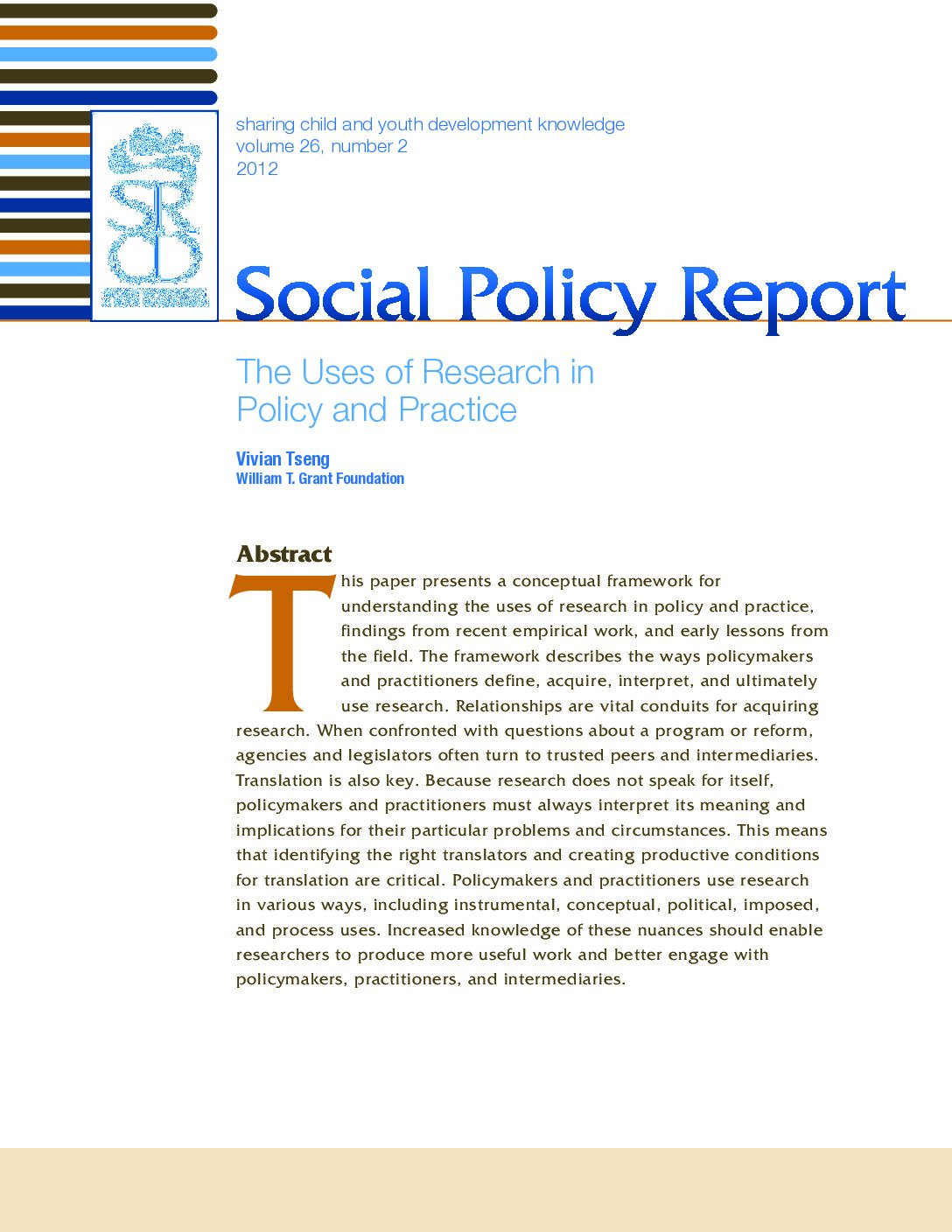
This essay synthesizes the lessons learned from the grants funded under the Foundation’s use of research evidence portfolio between 2009 and 2015. DuMont provides an overview of some key findings that have emerged about the acquisition, interpretation, and use of research evidence and outlines new directions for research to better understand how to improve the use of research evidence in policy and practice.
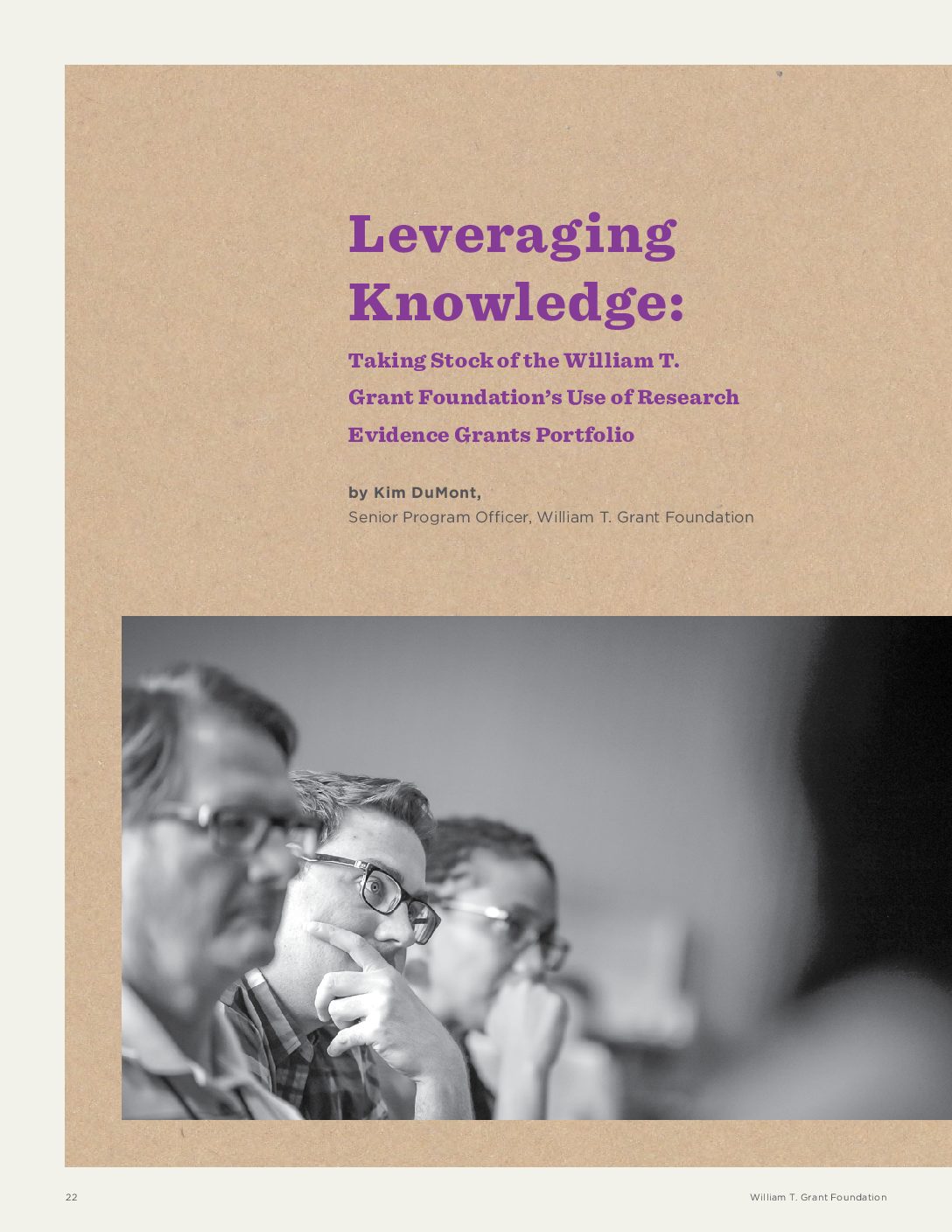
Theorizing Ways to Improve the Use of Research Evidence
This study examines how legislators use research evidence throughout the policymaking process by mapping their uses of research to existing theories of research utilization. The authors offer insights into the uses of research in the policy process that are not predicted by existing theory, and share findings that may be used to predict and improve the use of research evidence in the policy process.
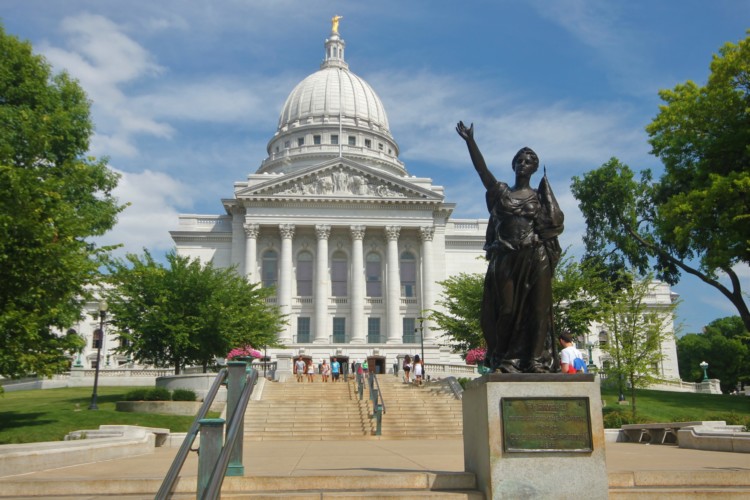
Digest, Issue 4: Winter 2018/19
This essay draws on insights from the Foundation’s portfolio of work on understanding and improving the use of research evidence to suggest new approaches to promote evidence-based policymaking. It concludes with an agenda for future research on evidence-based policies to understand how these policies achieve their intended outcomes and ultimately improve youth outcomes.

This paper describes examples of strategies that researchers and child welfare system leaders can implement to increase the use of research evidence in the child welfare field, from light-touch approaches to organizational change.
Lydia Killos
, Catherine Roller White
, Peter J. Pecora
, Erin Maher
, Kirk O’Brien
, , , , and Clare Anderson
Methods for Studying the Use of Research Evidence
This half-day series, held in November 2020 in collaboration with the Forum for Youth Investment, includes an overview of four methodological approaches to studying the use of research, as well as a look at an open-access methods repository for assessing the use of research in policy and practice. Four deep-dive workshops into specific methodological approaches offer a hands-on opportunity to understand how each advances research on research use, and the affordances, challenges, and trade-offs inherent in each approach.
The authors use discourse network analysis to understand how policymakers converge around a specific set of policy ideas in education. The method combines discourse analysis and network analysis to chart how shared policy beliefs and preferences emerge within networks of policymakers, intermediaries, researchers, and education practitioners.
In Studying the Use of Research Evidence: A Review of Methods, Drew Gitomer and Kevin Crouse highlight measures and methods from a range of methodological traditions that have been employed by researchers to assess the use of research evidence in disparate policy and practice domains, including education, child welfare, and public health. The report outlines core methodological issues in the study of the use of research evidence, reviews recent studies that illustrate specific data collection and study design methodologies, and discusses the affordances and limitations of each.
and Kevin Crouse
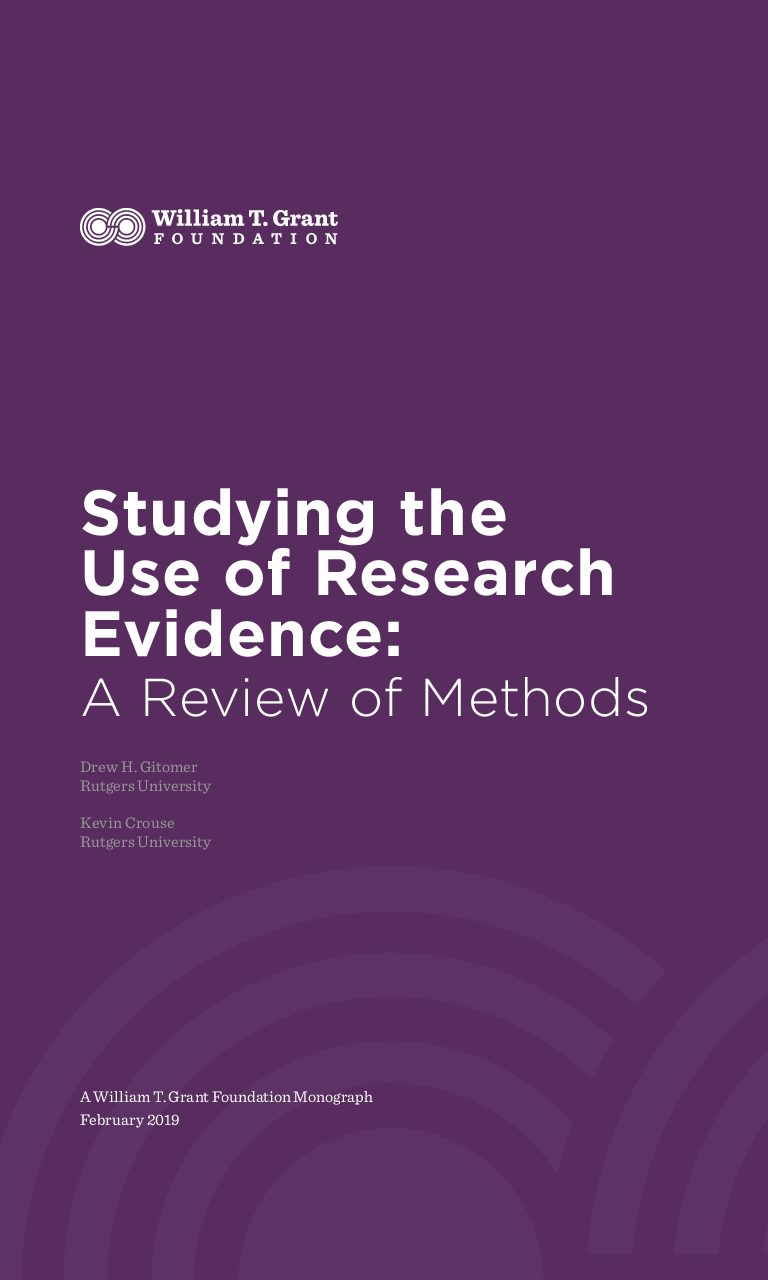
Critical Race Perspectives on the Use of Research Evidence
“Measuring Race and Racism in Studies of Research Use” is the fourth webinar in a series focused on bringing critical race perspectives to research that examines how to improve the use of research evidence in policy and practice. Past sessions have addressed the ways race matters for how research is used, what research is used, and whose research is used. This session focuses on concrete strategies for incorporating attention to race in a study’s research design. Targeted toward researchers who want to develop richer and more nuanced approaches to examining race in their own research, this webinar offers examples, strategies, and challenges related to the conceptualization and operationalization of race in research design.
This essay offers an introduction to critical research perspectives, particularly critical race theory, as they apply to the conceptualization and study of the use of research evidence. Doucet outlines three specific strategies for using critical race theory to inform a conceptual framework for studies focused on improving the usefulness of research evidence, wherein useful is considered from the perspective of the communities most affected by policy or practice.

Digest, Issue 6: Winter 2020-21
This essay offers guidance for studying strategies to improve the use of antiracist research evidence in ways that benefit youth of color. Doucet outlines the ways that critical race perspectives can shape all aspects of research on research use, offers insight into how studies to improve the use of antiracist research evidence can be designed, and offers key considerations to improve the usefulness and use of antiracist research.

Download
This essay applies a critical race perspective to examining the fundamental questions of why, how, and for whose benefit research is used in policy and practice. Kirkland encourages the field to understand the use of research evidence as a system of power and outlines considerations for the incorporation of critical, race-conscious perspectives at all stages of research production and use.

This October 2020 panel discussion offers three researchers’ perspectives on how to center race in efforts to improve the use of research evidence in policy and practice. The speakers draw upon critical race theory as a lens for examining the ways that racism pervades research and policy institutions and share insights on ways that research can inform policies and practices that disrupt racial hierarchies.
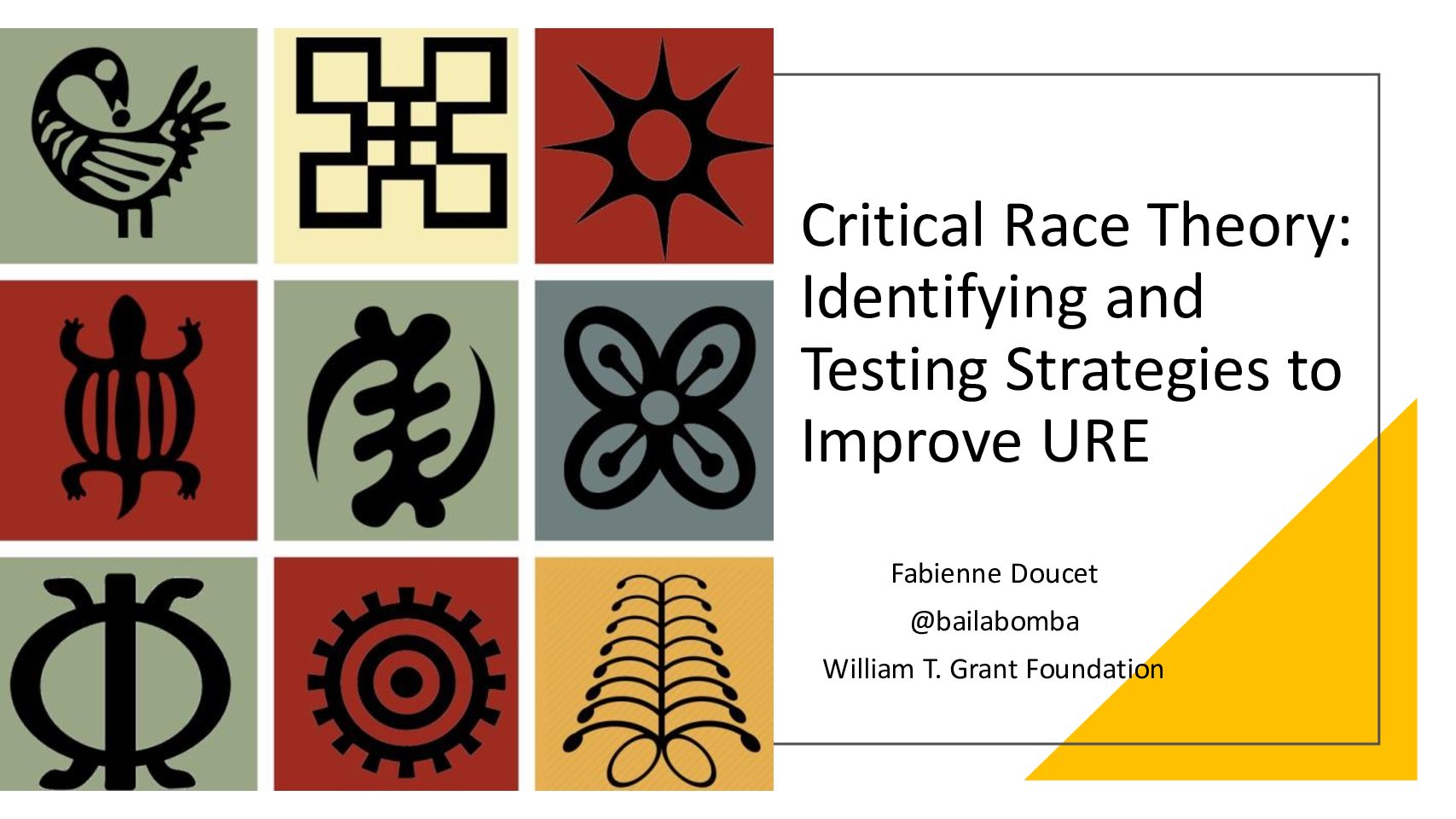
This March 2021 webinar continues the conversation from the October 2020 discussion and more deeply questions ideas such as the objectivity of evidence, the positionality of the researcher in policymaking, and the role of power and politics in the use of research evidence. The presenters offer a range of perspectives that underscore the necessity of understanding these ideas when undertaking studies to improve the use of research evidence.




